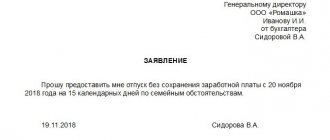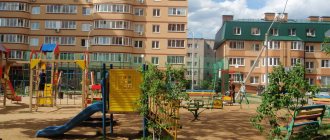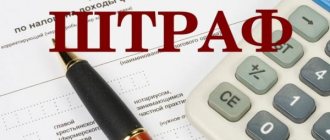Who should pay utility bills in a newly built house?
(two cases from judicial practice)
The cases described by me in this article are only isolated in the mass of claims that are brought by management companies in order to compensate for the costs they incurred for utility services and maintenance of the common property of apartment buildings. There are only two cases from judicial practice, but what a different approach the courts have to resolving disputes!
Developers (investors), when putting a house into operation, do not intend to maintain it; in any case, they avoid this encumbrance. Then the utility services make demands on the operating organizations, and they, in turn, are either forced to go to court with a claim against the developer, or simply distribute all costs among the persons living in the house.
So, first let's start with a review of the legislation. The burden of maintaining a newly constructed facility is borne by its owner (Article 210 of the Civil Code of the Russian Federation). The right of ownership of the developer (investor) of the object arises from the moment of state registration of his right to the constructed object (Article 219 of the Civil Code of the Russian Federation). Therefore, if there is no certificate of ownership of the object, there is no obligation to maintain this object. This conclusion is also supported by paragraph 4 of the Resolution of the Plenum of the Supreme Arbitration Court of the Russian Federation No. 54 of July 11, 2011. “On some issues of resolving disputes arising from contracts regarding real estate that will be created or acquired in the future,” where you can read that the provisions of the legislation on investment activities cannot be interpreted in the sense of giving persons financing the construction of houses the right of ownership to the constructed real estate at their expense.
Now the provisions of the Housing Code of the Russian Federation. According to Art. 153 of the Housing Code of the Russian Federation, the obligation to pay for utilities lies with the owners of premises, their tenants, tenants, members of a housing cooperative who received housing from this cooperative, and, finally, persons who received from the developer after the issuance of permission to put the house into operation of the premises in this house . Thus, this article, in addition to the owners who are obliged to bear the costs of maintaining individual premises in an apartment building, refers to tenants, tenants of premises, and since June 2011 - also to persons who received premises from the developer. Does it mean that before transferring a commissioned residential building to another person, the burden of expenses for its maintenance must be borne by the developer? From the meaning of the Civil Code of the Russian Federation and the said Resolution of the Plenum of the Supreme Arbitration Court of the Russian Federation, a positive answer to this issue is not discernible. But how do courts apply it in practice?
Case 1. First, the Dolina Grez-2 HOA appealed to the Moscow district court for recovery from the group. S, who is the owner of the apartment on the street. Krylatskaya, the cost of utilities and expenses for maintaining the common property of the house for the period from the moment of formation of the HOA and payment by it for all services provided to the house by the city's municipal services, until the defendant registered ownership of this apartment.
As follows from the case materials, between JSC Holdingovaya (Investor) and gr. S (Co-investor) entered into investment agreement No. 01K-KR005-012/GN dated November 18, 2004.
The subject of the agreement is the interaction of the parties to invest in the construction of an object with the subsequent right of the Co-investor to register the ownership of the result of investment activities in the form of a three-room apartment.
The agreement states that the Co-Investor (column C) bears the costs of management, utilities and technical maintenance of the Object in relation to the accepted Investment Object and its Participatory Share in the Common Property, starting from the date of transfer of the Object for occupancy in accordance with the signed “key certificate” and until obtaining a certificate of state registration of the Co-investor’s ownership of the Investment Object. Moreover, payments are paid by the Co-investor based on the actual costs of the operating (managing) organization.
The co-investor undertakes, upon acceptance of the Investment Object (signing the Act), to enter into agreements with the relevant operating organizations (or HOA) for management, utilities and maintenance of the Investment Object within the limits of its share of participation in the common property and bear the costs of mandatory payments in other general expenses (according to the agreement for service).
By the decision of the Ostankino District Court of Moscow dated November 17, 2010, which entered into legal force by the decision of the cassation board of the Moscow City Court, the plaintiff’s claims were partially satisfied, i.e. with gr. Payments for utilities and expenses for the general maintenance of the house were collected only from the moment of receipt of the apartment according to the acceptance certificate until registration of its ownership.
In the reasoning part of the decision, the Ostankino court wrote the following.
In relation to the provisions of Art. 431 of the Civil Code of the Russian Federation, taking the literal meaning of the words and expressions contained in the above agreements by, inter alia, comparison with the terms and meaning of the agreement as a whole, the court came to the conclusion that the occurrence of the defendant’s obligation to pay the costs of management, utilities and technical maintenance of the facility within the framework of the concluded The contract is possible only after acceptance of the apartment and signing of the acceptance certificate.
At the same time, the information presented by Glavmosstroy OJSC to the court that no cash payments were made for the maintenance of the HOA apartment by it does not indicate that this organization (“Glavmosstroy”) did not have any obligation to make such payments, since until the moment of acquisition by the defendant (column C) ownership rights to the specified apartment, the constructed property was under the management and possession of OJSC Glavmosstroy, which is also confirmed by the transfer of the apartment to the defendant under the deed by the specified company. In addition, this circumstance is also indicated by the provisions of the investment agreement dated November 18, 2004, based on which, in the event of failure by the Co-investor to fulfill the obligations stipulated by the agreement, the Co-investor will compensate the Investor () for all costs incurred by the latter in making operational and other service payments, penalties imposed on the Investor in connection with non-payment of the specified payments, starting from the date the Investor receives the “key certificate” (it confirms the possibility of actual operation of the facility) and until the conclusion of service agreements directly by the Co-investor. Based on these conclusions, the Ostankino District Court recovered from the city. In favor of the Dolina Grez-2 HOA, utility bills and expenses for maintaining the common property of the house only for the period from the date of receipt of the gr. From OJSC Glavmosstroy of the apartment according to the transfer and acceptance certificate and until it receives a certificate of ownership of this apartment.
As for the debt incurred before the transfer of the apartment to Mr. C, the court considered it obligatory to pay it, which gave the Dolina Grez-2 HOA a reason to file a claim with Glavmosstroy in the arbitration court for the collection of payments accrued before the transfer of the apartment to the city. WITH.
In the second claim, the Dolina Grez-2 HOA asked the arbitration court to recover the entire amount for utilities and maintenance of the common property of the house in proportion to the area of the apartment for the period the HOA paid utilities to the municipal services of the city and before the transfer of the apartment to the city. WITH.
The Arbitration Court of Moscow, referring to the conclusion made by the Ostankino Court of Moscow about the debtors of utility bills in the disputed apartment, without taking into account Art. Art. 210, 219 of the Civil Code of the Russian Federation, as well as the guiding explanations of the said Plenum of the Supreme Arbitration Court of the Russian Federation, taking into account the provisions of Art. 153 of the Civil Code of the Russian Federation, decided to satisfy the claim and recovered in favor of the HOA all expenses for utility bills and maintenance of the common property of the house from the moment the house was transferred to the balance of the HOA until the transfer of the apartment to the group. S. (RESOLUTION No. 09AP-15542/2012-GK, Moscow, Case No. A40-109516/11-105-964 June 26, 2012)
Of course, judicial acts do not comply with either the above provisions of the law or the explanations of the Supreme Arbitration Court of the Russian Federation. Most likely, the arbitration courts were forced to make such a decision by the decision of the Ostankino court, which had already entered into legal force, on the claim of the Dolina Grez-1 HOA against the city. S. But if you read into this decision, it does not make an unambiguous conclusion about the obligation of Glavmosstroy to bear the costs of maintaining the apartment, which was later transferred to Mr. C. It literally says the following: under such circumstances, the possibility of paying utility bills for the apartment before transferring it to the city is not excluded. C. The arbitration courts interpreted this entry as the court-established obligation of Glavmosstroy to pay for utilities and expenses for maintaining the common property of the house, and this, in the author’s opinion, is a controversial conclusion.
The Ostankino court considered that the entry in the agreement about the obligation of gr. Compensating Glavmosstroy’s costs for utilities and other services from the moment of receiving the “key certificate” and before registration of ownership of the apartment indicates the obligation to pay utility bills and in the future, after the transfer of the apartment, to collect them from the city. S. That is, based on the logic of the court, OJSC, “being an investor in the construction of a house, has the right to recover the amount paid for utilities from the city. S. from the date she received the “key certificate” until she received the certificate of ownership of the apartment.
Case 2. Similar to the first.
The homeowners' association "Valley of Dreams-2" (hereinafter referred to as the HOA "Valley of Dreams-2") filed a claim with the Moscow Arbitration Court for recovery from the open joint-stock company Holdingovaya (hereinafter referred to as OJSC Holdingovaya) (taking into account the clarification of the claims accepted court in accordance with Article 49 of the Arbitration Procedural Code of the Russian Federation) debts for payment of utilities and expenses for maintaining the common property of the house, interest for the use of other people's money. In support of the claim, the plaintiff referred to the fact that he had incurred expenses from his own funds for the maintenance of parking spaces built but not yet sold by the defendant. The HOA had to pay all utility bills and operating costs for the defendant's parking spaces.
By the decision of the Moscow Arbitration Court dated August 9, 2011, the claims of the Valley of Dreams-2 HOA were denied in full.
The court's decision was upheld by the court of appeal. However, the FAS Moscow District, having considered the cassation appeal of the HOA against these judicial acts, canceled them and sent the case for a new consideration, indicating the following in its Resolution.
The court of first instance did not determine the disputed legal relationship and the rules of substantive law that govern these relationships.
The Cassation Board also considers it necessary to draw the court's attention to the guiding clarifications contained in paragraph 4 of the Resolution of the Plenum of the Supreme Arbitration Court of the Russian Federation dated July 11, 2011 No. 54 “On some issues of resolving disputes arising from contracts regarding real estate that will be created or acquired in future”, as follows.
When considering disputes arising from agreements related to investment activities in the field of financing the construction or reconstruction of real estate, courts should establish the legal nature of the relevant agreements and resolve the dispute according to the rules of Chapters 30 (“Purchase and Sale”), 37 (“Contract”), 55 (“Simple partnership”) of the Code, etc.
Unless otherwise established, courts should evaluate contracts related to investment activities in the field of financing the construction or reconstruction of real estate as contracts for the sale and purchase of future immovable property. In this case, the courts must take into account that the provisions of the legislation on investments (in particular, Article 5 of the RSFSR Law “On Investment Activities in the RSFSR”, Article 6 of the Federal Law “On Investment Activities in the Russian Federation Carried out in the Form of Capital Investments”) cannot be interpreted in in the sense of vesting persons who finance the construction of real estate with the right of ownership (including shared ownership) of the real estate being built at their expense.
The right of ownership to real estate objects arises from persons who have entered into an agreement for the purchase and sale of future real estate (including cases where such agreements are subject to legislation on investment activities), according to the rules of paragraph 2 of Article 223 of the Civil Code of the Russian Federation, that is, from the moment of state registration in the Unified State Register this right belongs to the buyer.
Taking into account the above, the Court of Cassation decided to cancel the previously issued judicial acts and send the case for a new trial, taking into account the stated comments (Resolution of the Federal Antimonopoly Service of the Moscow Region dated February 15, 2012 in case No. A40-1593/11-142-16).
Here is another approach of the court to a situation similar to that described before. If in the first case, neither the Ostankino court, nor later the Moscow Arbitration Court, when collecting the cost of utilities, did not take into account the rules of Art. Art. 210, 219, 223 of the Civil Code of the Russian Federation, in the second case, as we see, the courts referred to these rules of law and made their conclusion taking into account the requirements of these rules. The content of the reasoning part of the Resolution of the Court of Cassation in general also suggests a refusal to satisfy the claim. When re-examining the case, the court only needs to change the content of the substantiating part of the decision, leaving the operative part unchanged. But the cassation court could have done this too.
In such a situation, when different courts understand the same cases differently, in the author’s opinion, it is necessary for the higher courts to intervene and give appropriate explanations to the lower ones.
Utility debts of convicts
Lawyer, Alexey Belous
How not to lose your apartment after release
Housing legislation provides for two types of users of residential premises: owners and tenants.
Owners
- these are citizens who own residential premises and dispose of them at their own discretion.
Important: the right of ownership does not cease when a citizen is imprisoned in an MLS,
unless this is provided for by a court decision.
Tenants -
These are persons who have received residential premises for use from the state or municipal housing stock on the basis of a social tenancy agreement.
Obligation to make housing and utility payments
According to Part 1 of Art. 30 of the Housing Code of the Russian Federation, the owner of a residential premises (both a citizen and the state represented by authorized persons to enter into social tenancy agreements) exercises the rights of ownership, use and disposal of the residential premises belonging to him by right of ownership in accordance with its purpose and the limits of its use, which are established by the Housing Code of the Russian Federation .
By virtue of Art. 210 of the Civil Code of the Russian Federation, the owner is responsible for the maintenance of property owned by him, unless otherwise provided by law or contract.
And if the owner ends up in prison, this responsibility is not removed from him.
In accordance with Part 4 of Art. 30 of the Housing Code of the Russian Federation, the owner of a residential premises is obliged to maintain this premises in proper condition, preventing mismanagement of it, respect the rights and legitimate interests of neighbors, and the rules for the use of residential premises.
Part Part 1 Art. 153 of the Housing Code of the Russian Federation obliges citizens and organizations that own residential premises to promptly and fully pay for the premises and utilities.
There is no provision in the legislation that exempts citizens serving sentences in correctional institutions from paying for utilities and housing maintenance services.
Because the lack of earnings and other income among persons in MLS does not indicate a loss of their ability to work
.
In accordance with Part 1 of Art. 155 of the Housing Code of the Russian Federation, payment for residential premises and utilities is paid monthly before the tenth day of the month following the expiration of the month, unless a different period is established by the management agreement of the apartment building or by a decision of the general meeting of owners.
For those who have not paid the payment on time, a penalty is charged for each day of delay, starting from the 31st to the 99th day. During this period, the penalty amount is 1/300 of the refinancing rate, and from 91 days the penalty amount will be 1/130 of the refinancing rate. (Part 14 of Article 155 of the RF Housing Code).
An increase in the amounts of penalties established by this part is not allowed.
The presence of the defendant in prison, whether he is the owner or the tenant, does not apply to force majeure circumstances that relieve him of the responsibility to pay for the maintenance of the residential premises on time. And if the payment schedule is violated, he will be charged a penalty.
In this case, convicts can petition the court to defer payment of debt, citing lack of work at the place of serving their sentence, low earnings, etc.
Which payments are mandatory for people temporarily absent, and which ones they may not make?
Housing maintenance costs are divided into two main groups:
- Public utilities
- Housing maintenance
Utilities include: electricity supply, cold and hot water supply, water disposal (sewage), heating and removal of solid waste (MSW).
In addition, there are general house utilities and individual consumption services, which are calculated according to the tenant’s meter readings or according to standards.
If individual metering devices are installed in the apartment, then payment for utilities is made for the actual consumption of resources, based on meter readings. Exceptions include solid waste and wastewater disposal. In this case, the number of residents does not matter.
If this data is not transferred to the management company within 6 months, then accrual will be made according to the standards based on the number of registered citizens in the residential premises.
If there are no individual metering devices in the residential premises, then payment is made according to approved standards, based on the number of registered citizens in the residential premises.
If a person ends up in a pre-trial detention center, then there will be no charges for utilities according to the standards. To do this, you need to provide the managing organization with a certificate from the pre-trial detention center or a copy of the arrest warrant.
When the sentence comes into force and the convict is sent to a colony, he is removed from registration, and utility bills are also not charged according to the standards.
The obligation to pay for utilities for the maintenance of public places in full remains with the arrested and convicted person. This part of the payment is mandatory for all citizens, regardless of whether they live in the apartment or are temporarily absent.
The same applies to housing maintenance services.
Let us remind you that the payment for the maintenance of housing includes payment for the services of the management organization for the maintenance of common areas (entrance, basement, roof, local area), including carrying out routine repairs, as well as the costs of major repairs of the house and other costs of the house certain owners of the general meeting.
The owner is obliged to pay for these services in full even if he does not live in his home for some time.
Can housing and communal services debt deprive a prisoner of the right to own an apartment?
Debt for housing and communal services to the management company, including to the HOA, TSN, ZhK ZhK, etc., established by the court and the decision on collection, does not imply automatic deprivation of ownership of the premises.
The owner can lose the right to an apartment either voluntarily, by donating it or selling it, or forcibly only by a court decision.
If the management company sues the defaulter, the court may seize the residential premises to secure the claim (Article 139 of the Code of Civil Procedure of the Russian Federation).
Seizure of property does not deprive the debtor of the right to own and use the property in accordance, but only limits his rights to dispose of (sell, give, exchange).
If the convicted person is not the owner, but an employer, he must remember that the Social Rental Agreement is concluded without an expiration date and does not terminate when it is entered into the MLS.
About registration accounting
According to clause 2 of the “Rules for registration and deregistration of citizens of the Russian Federation at the place of stay and place of residence within the Russian Federation”, approved by Decree of the Government of the Russian Federation of July 17, 1995 No. 713 and clause 31 of these rules,
a convicted citizen, on the basis of a court verdict that has entered into legal force, is removed from
the registration register at the place of residence.
At the same time, while in the MLS, he does not lose the right to use the disputed premises, since he does not live in the premises temporarily, Art. 71 Housing Code of the Russian Federation.
If the tenant and members of his family living with him, for more than six months, without good reason, do not pay rent for living quarters and utilities, they can be evicted in court with the provision of another
living quarters under a social tenancy agreement, the size of which corresponds to the size of the residential premises established for moving citizens into the hostel.
( Clause 1, Article 90 of the Housing Code of the Russian Federation).
A citizen's imprisonment is not grounds for terminating a residential sublease agreement provided under a social tenancy agreement. This circumstance is not specified by law as a basis for applying the provisions of Art. 79 Housing Code of the Russian Federation.
Share link:
Housing and communal services news
When renting premises , it is quite natural that the tenant uses utilities such as electricity, water supply, sewerage, gas supply, heat supply. But in what cases does the tenant have an obligation to pay for such services to the management organization that provides utilities (hereinafter referred to as the Contractor)?
According to the general rule of Article 210 of the Civil Code of the Russian Federation (hereinafter referred to as the Civil Code of the Russian Federation), the owner bears the burden of maintaining the property he owns. Otherwise may be provided by law or contract.
As established by Article 249 of the Civil Code of the Russian Federation, each participant in shared ownership is obliged, in proportion to his share, to participate in the payment of taxes, fees and other payments on common property, as well as in the costs of its maintenance and preservation.
According to Part 1 of Article 39 of the Housing Code of the Russian Federation (hereinafter referred to as the Housing Code of the Russian Federation), owners of premises in an apartment building bear the burden of expenses for maintaining common property in an apartment building.
Thus, it is the owner of non-residential premises located in an apartment building, by virtue of the direct instructions of the law, who is obliged to bear the costs of maintaining the common property.
Clause 2 of Art. 616 of the Civil Code of the Russian Federation provides that the tenant is obliged to bear the costs of maintaining the leased property, unless otherwise provided by law or the lease agreement. However, the legislator does not specify what applies to such expenses for each specific type of property.
Since the provisions of the above article are dispositive, the parties have the right to independently determine who will bear the costs of paying for utilities and other costs of maintaining the property by agreeing on the terms of payment for such services in the lease agreement.
By virtue of paragraph 3 of Article 308 of the Civil Code of the Russian Federation, an obligation can create rights for third parties in relation to one or both of its parties only in cases provided for by law, other regulations or agreement of the parties. At the same time, the current legislation does not contain rules that entail the obligation of the tenant to pay for utility services to the third party providing them (the provider of such services represented by the management company or RSO).
However, in practice, quite often a situation arises when an unscrupulous tenant, for reasons known only to him, does not fulfill the agreed obligation and avoids concluding an agreement with the utility service provider. What should a management company do when the tenant actually consumes utilities in a non-residential premises, and the payment debt is only growing?
In judicial practice, there have been two approaches to resolving this issue:
Payment for utilities consumed by a tenant of non-residential premises in an apartment building cannot be collected from a tenant who has not entered into agreements with the provider of utility services in violation of the lease agreement, which stipulates that the tenant pays for utility services, or the tenant’s obligation to enter into agreements with their suppliers. Payment for utility services in this case can only be collected from the owner of the non-residential premises.
1. The Presidium of the Supreme Arbitration Court of the Russian Federation in Resolution No. 13112/12 of May 21, 2013 came to the conclusion that since clause 2 of Article 616 of the Civil Code of the Russian Federation regulates exclusively the legal relations between the parties to the lease agreement, and therefore cannot be the basis for the emergence the tenant's obligations to pay the costs of maintaining the leased property in favor of third parties. Since the tenant's obligation under this article is established in relation to the landlord, who has the right to demand the performance of the actions specified in it, the corresponding rule may be applicable, in particular, in settlements between the tenant and the landlord in order to reimburse the costs incurred by the latter to pay for utility bills.
An additional agreement to the management agreement on payment of utility costs by the tenant participating in its signing, which would confirm the will of all parties to the transaction for the tenant to fulfill this obligation and change the rule established by Article 210 of the Civil Code, was not presented to the court.
Thus, the recovery by the courts of the cost of utilities from the company as a tenant of the premises cannot be recognized as corresponding to the norms of substantive law.
2. The Presidium of the Supreme Arbitration Court of the Russian Federation in Resolution No. 17462/13 dated March 4, 2014 in case No. A40-128959/12 explained that, as a general rule, Article 210 of the Civil Code of the Russian Federation, the owner bears the burden of maintaining the property belonging to him. Otherwise may be provided by law or contract. According to the Supreme Arbitration Court of the Russian Federation, the law does not directly impose such a burden on the tenant. The specified obligation of the tenant also cannot flow from the lease agreement, since the agreement regulates the relationship between the owner and the tenant. Based on this, the Supreme Arbitration Court of the Russian Federation came to the conclusion that, by not paying for the utility services provided, the owner unjustly enriched himself at the expense of the resource supply organization (clause 1 of Article 1107 of the Civil Code of the Russian Federation) and is obliged to reimburse the cost of the services actually provided.
Also, the Supreme Arbitration Court of the Russian Federation noted that, by virtue of clause 2 of Art. 616 of the Civil Code of the Russian Federation, as a general rule, the costs of maintaining the property, including the costs of utilities, are borne by the tenant. However, the obligation does not create obligations for persons not participating in it as parties (clause 3 of Article 308 of the Civil Code of the Russian Federation).
It seems that in this situation, responsibility for failure to fulfill the obligation to maintain the property arises from the tenant to the lessor - the owner of the property, and not to the resource supplying organization. Thus, if the tenant did not enter into an agreement with this organization on his own behalf, then he is not obliged to pay this organization for the services provided, despite the fact that he was their consumer.
A similar conclusion was subsequently made by the Supreme Court of the Russian Federation in Review of Judicial Practice No. 2 (2015) (approved by the Presidium of the Supreme Court of the Russian Federation on June 26, 2015).
In the Review of Judicial Practice of the Supreme Court of the Russian Federation No. 2 (2015), a point of view was expressed regarding the impossibility of imposing the payment of utility costs on the tenant in the absence of an agreement between the utility provider and the tenant:
“...By virtue of the second paragraph of clause 3 of Art. 308 of the Civil Code of the Russian Federation, an obligation can create rights for third parties in relation to one or both of its parties only in cases provided for by law, other legal acts or agreement of the parties. The Civil Code of the Russian Federation and other laws do not contain rules on the emergence, on the basis of a lease agreement of non-residential premises, of an obligation on the part of the tenant to pay for utility services to the third party providing them (provider of utility services, resource supplying organization).
The tenant’s obligation to maintain the property in good condition, carry out routine repairs at his own expense and bear the costs of maintaining the property (Clause 2 of Article 616 of the Civil Code of the Russian Federation) is established in relations with the lessor, and not with the utility service provider or resource supplying organization that is not a party to the agreement rent.
The utility service provider (resource supply organization), in the absence of an agreement concluded with it, does not have the opportunity to exercise control over which person actually uses the non-residential premises, including on the basis of a lease agreement.
Therefore, in the absence of an agreement between the tenant of non-residential premises and the provider of utilities (resource supply organization), concluded in accordance with current legislation and the terms of the lease agreement, the obligation to pay for such services lies with the owner (lessor) of the non-residential premises.”
Thus, having provided in the lease agreement a condition on the tenant’s obligation to independently conclude an agreement with the utility service provider and subject to the conclusion of the specified agreement with the utility service provider, the tenant has the right to pay for consumed utilities directly to the provider.
Before the publication of the above-mentioned Resolutions of the Presidium of the Supreme Arbitration Court of the Russian Federation, the courts took a completely opposite position, considering that payment for utilities consumed by a tenant of non-residential premises in an apartment building can be recovered from a tenant who has not concluded agreements with the provider of utility services in violation of the lease agreement, which provide for the condition that the tenant pay for utilities or the tenant’s obligation to enter into contracts with their suppliers. (Resolution of the Federal Antimonopoly Service of the Ural District dated 10.10.2011 No. F09-5983/11 in case No. A50-25363/10, Resolution of the Federal Antimonopoly Service of the Far Eastern District dated 01.08.2011 N F03-3273/2011 in case No. A51-15108/2010).
Thus, the Presidium of the Supreme Arbitration Court of the Russian Federation, and subsequently the Supreme Court of the Russian Federation, put an end to the relationship between the Owner - the Owner - the Tenant.
Currently, the courts are guided by the fact that the content of the lease agreement stipulating the tenant’s obligation to enter into an agreement with the utility provider for the supply of utility resources does not in itself impose an obligation on the tenant to automatically pay for these services. If, of course, such agreements are concluded by him, this will relieve the owner of non-residential premises from the obligation to bear the costs of paying for utilities.
Considering case No. A03-16138/2015, the Arbitration Court of the West Siberian District, in Resolution No. F04-3452/2016 dated 09/02/2016, refused to satisfy the demands of the RSO to collect payment from the owner for consumed electrical energy due to the fact that the obligation to pay for the resource lies with a public organization that, being a tenant, entered into an independent energy supply agreement with RSO and actually consumed electricity.
“At the same time, rejecting the arguments of the Plaintiff (resource supply organization) regarding the inconsistency of the appealed judicial acts with the legal position expressed in Review No. 2 (2015), .... is untenable, since the position given in them about the obligation of the owner, and not the tenant, to pay for utilities applies to situations other than in the present case, namely to cases when between the tenant and the owner of the premises there is only a concluded lease agreement with or without the condition of payment by the tenant of resources to energy supplying organizations, but at the same time, the resource supplying organization (in the direct form of management of an apartment building) or the organization managing the apartment building with the tenant does not have a resource supply agreement (provision of utility services), under which the tenant would assume an obligation to these organizations to pay for the received resources.
The explanations set out in Review No. 2 (2015) are given taking into account the conclusion of the Presidium of the Supreme Court of the Russian Federation that the provider of public services (resource supply organization), in the absence of an agreement concluded between him and the tenant, does not have the opportunity to exercise control over which person actually uses non-residential premises, including on the basis of a lease agreement.
With the conclusion of an independent energy supply agreement No. 3472 with a third party, the plaintiff is aware of the actual user of the non-residential premises, in relation to the energy consumption of which, as a subscriber of the plaintiff, the latter exercises appropriate control.”
Based on materials from the site https://burmistr.ru, article by Evgenia Semenova.
Who is entrusted with
Persons responsible for making payments for the maintenance of residential premises include (Article 31 of the Housing Code of the Russian Federation[1]):
- family members living together with the owner (clause 1, clause 3 of Article 31 of the Housing Code [1]);
- former family members who continue to live in the living space by decision of the court (clause 4 of article 31 of the Housing Code [1]);
- citizens using the premises under a contract/agreement providing for such obligations (clause 6 of article 31 of the Housing Code[1]).
In addition, they include persons who have a share in real estate (Article 249 of the Civil Code[2]), or who own it by joint ownership.
If a debt for utility services arises, joint liability can be imposed by the court on anyone (or all together) who is obliged by law to make payments, except for minors.









